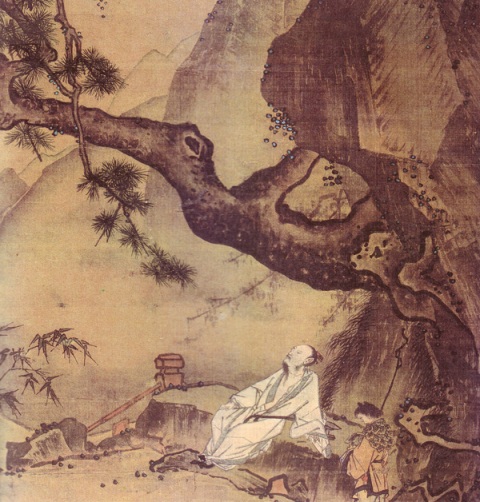 Submitted by Aurora Lightfoot on
Submitted by Aurora Lightfoot on

Once upon a time in a rural Chinese village, there was an old man who people considered very wise. They trusted his judgment and frequently came to him with their questions and concerns.
One day a poor farmer approached the man with a terrible dilemma. "Oh wise man, help me," he pleaded. "A horrible thing has happened. My ox died, and now I have no animal to help me plow my field! Isn't this just the worst thing that could have happened?" The wise man replied by saying, "maybe so, and then again, maybe not." Irritated that the man didn't seem to grasp the seriousness of his predicament, he rushed back home and told all this neighbors that the wise man had lost his marbles.
The next day, however, a strong young horse wandered into the man's farm. Upon seeing this animal, he had the idea to catch the horse and hook it up to his plow, which was more efficient that the ox had ever been. So he went back to the wise man and apologized for his earlier behavior, admitting that he had been wrong to question the wise man's judgment. It had been a blessing in disguise! Surely, he inquired, this had to be the best thing that could have happened.
"Maybe, maybe not," the wise man replied again. Now even more irritated than before, the man stormed off, thinking the wise elder was simply jealous of his good fortune.
The next day, however, the farmer's son was riding the new horse when he was thrown off, breaking a leg. This was awful! Now his son could not help harvest the crop, which meant his family was in risk of starvation. So once again the farmer went to the wise man seeking sympathy. "How did you know that capturing this horse was not a good thing? You certainly are wise. But surely you must agree that now this is indeed the worst thing that could possibly happen. "Maybe so, maybe not," was the wise man's reply, which sent the farmer off in a furious rage.
A week later, government troops arrived to canvas the village. They took every able-bodied man of a certain age to be drafted into the war that had just broken out. All the new recruits from this village were sent to the front line, where each and every on was cut down in battle. But because the farmer's son had broken his leg the week earlier, he alone was spared and could now carry on the family name.
Prophets of Disaster.
The moral of the story is this: We often spend an enormous amount of time and energy fretting future catastrophes which never arrive. Life throws us a curveball that interferes with our plans, and we automatically assume the worst. Psychologists call this "fortune telling," and it can add a lot of unnecessary stress and anxiety to our lives.
Our brains are anxiety machines by nature. But recognizing this tendency in ourselves can help buffer against this natural inclination.
The truth is that some of our best experiences and most wonderful opportunities arise from what at first seem like terrible developments. An unwanted move, a lost job . . . many things which turn out to be a stepping stone in our lives seem like a disastrous setback at the time.
We don't ever know how things will turn out:. Ever. In fact, studies show we aren't very good at predicting what's best for us in the first place. What people assume will make them happy often doesn't, and what they overlook or see as negative or insignificant often turns out to have a positive impact on their lives. Therefore these goals of ours that we fret so much about aren't necessarily even pointing us in the right direction to begin with.
So the next time life throw you a curveball and your mind is telling you how disastrous this development will be, you have two choices. Either run around in despair like the man in the story, fretting that the sky is falling, or just shrug your shoulders and say, "maybe, maybe not."
Katie McCoy
http://articles.submityourarticle.com/frantically-obsessing-over-tomorrow-354515
http://www.keepyourchildsafe.org/family-parent-child-help.html
- 706 reads